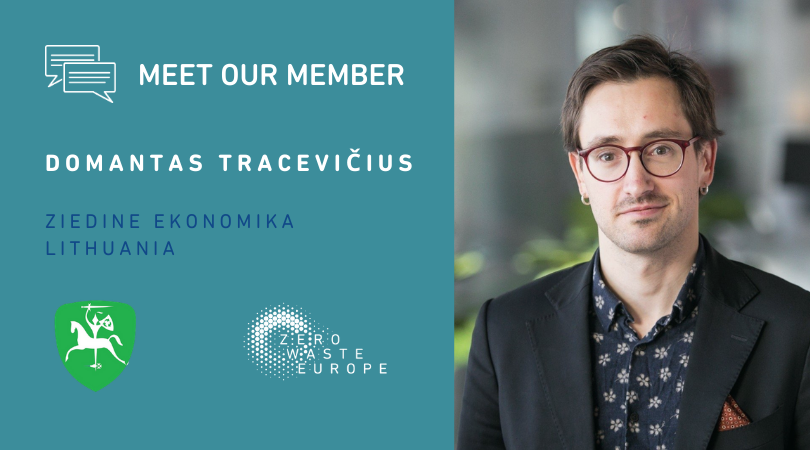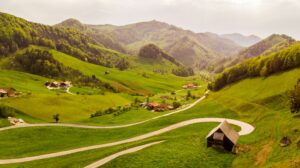Meet our members – Ziedine Ekonomika

Zero Waste Europe is happy to introduce the blog series “Meet our members”. Through this series of monthly interviews, we want to give you a chance to get to know our members and the work they are doing.
Meet Domantas Tracevičius from Ziedine Ekonomika, Lithuania
Hi Domantas, can you give us a brief introduction to Ziedine Ekonomika’s focus?
Advocacy! I strongly believe that a circular economy could be easily achieved through certain laws and regulations which take into account material use, pollution and carbon footprint challenges. Once those things are taken into account, then being zero waste becomes cheap and the most attractive option 🙂
We do not need 5% perfect zero wasters, but 95% imperfect zero wasters
How long have you been in the field and what got you into (zero) waste?
Probably all my life 🙂 I basically grew up in a composting plant where my father used to work. I got to see how nature can manage OUR WASTE in a very efficient way using microbes (as with traditional composting), redworms, and insects. Also, I remember helping him set up a trial kitchen waste separate collection scheme for apartment blocks in the late 90s. It was a success, but the municipality decided not to roll out collection in the city. To this day, we do not have a separate kitchen waste collection in Vilnius! However, this time around, I work with local authorities to make it right. So fingers crossed that, in about 2 years, we will have a working system.
What is your current role in the organisation?
I always invite people to join the organisation and work on the topics they love. Ziedine Ekonomika is still a young organisation, as I founded it in 2016, but it is growing rapidly.
We are now able to do many more projects and professional activities – and even make a living out of it! I help with directing people towards information, i.e. case studies, best practice examples, and people with whom it is possible to work to achieve your desired environmental goals.
Tell us more about one ongoing campaign/activity you’re working on?
For the last few years, I have been working on introducing changes to the national biowaste management legislation. The EU regulation gives strict but very clear rules on how to handle household food waste. However, it also gives national authorities the possibility to change them! The most advanced-thinking countries in terms of recycling – such as Slovenia, Italy, Austria, and Germany – used these rules to make rational national legislation turning composting and anaerobic digestion into an affordable process. This process does not make separate collection of kitchen waste expensive – on the contrary, it becomes a cheaper option without compromising on safety. I have seen final drafts of new biowaste management legislation and, if all goes well, from 2021 onwards Lithuania will join these countries, and will be the first Eastern European member state to have sensible composting and anaerobic digestion process regulations 🙂
If there was one thing that you would like your organisation to be known for, what would it be?
We have recently finished a project with the Žemaitijos national park to help them set up green waste composting operations. It is a lovely location and working with their people was an absolute pleasure. I can not wait for it to enter the operations phase!
How would you describe the growth of the Zero Waste movement in your country? What is your perspective for the future?
So many people are now interested in zero waste movement! This gives me hope.
The growth of the zero waste movement has been exponential and I expect it to remain so. Nature is given to us to enjoy and cherish, and most people are starting to act on it. I believe that, with a little help from policies in the next 5 years we can reach that the majority of the people would become imperfect zero wasters.
How is the current COVID-19 pandemic impacting your work?
Very strongly. We had to cancel a lot of events in schools. The current situation is sad, but at the same time it is a good wake-up call for people to start caring about wildlife.
As per WWF’s calculations, more than half of the wildlife have perished in the last 50 years. If we enjoy our lives without hurting nature, we will not need to face another pandemic.
You can find more about Zedine Ekonomika and their work here.


